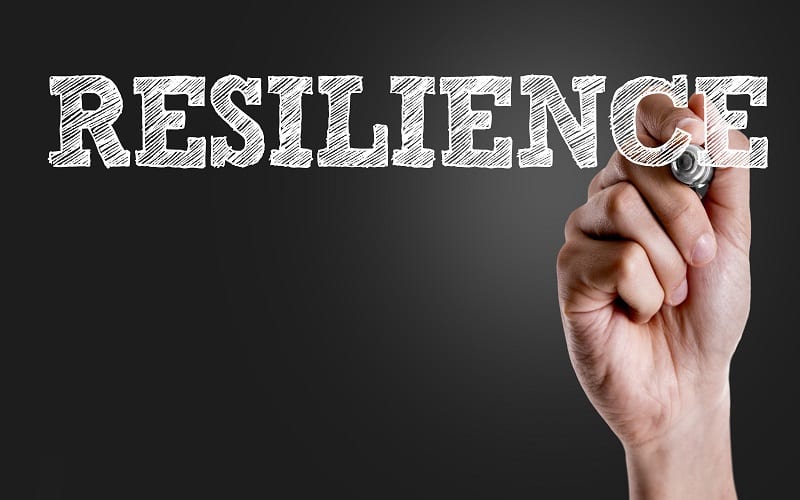Prof. (Dr.) Anupam Saraph, a Systems Thinker and Thought Leader with a Ph.D. in Designing Sustainable Systems from the Faculty of Mathematics and Natural Sciences of the Rijksuniversiteit Groningen, the Netherlands, and currently a Future Designer recognized as a Global Expert on Complex Systems at Symbiosis Institute of Computer Studies and Research based in India participates in Risk Roundup to discuss the “Need for Mutualistic Symbiosis in the Post COVID-19 World”.
Need for Mutualistic Symbiosis in the Post COVID-19 World
The COVID-19 pandemic is accelerating the need for fundamentally altering the way we live, work, and operate. The scale, scope, complexity, and speed of the necessary changes have no historical precedent. Furthermore, the breadth, depth, and impact of these changes herald the transformation of entire interconnected and interdependent systems of socialization, education, innovation, production, management, governance, and more. While there is still time to define how this pandemic-driven transformation of the human ecosystem needs to unfold, one thing is clear: the need for symbiosis in our POST-COVID 19 world is real.
COVID-19 Pandemic
As the COVID-19 pandemic hits humanity, the systems seem to be collapsing. While over the years, nations’ systems have been based on principles of competitiveness, and that of the survival of the fittest—the question we need to evaluate is whether the model and approach are sustainable as we move forward in the post-COVID-19 world.
While the COVID-19 pandemic has accelerated the need for redefining and redesigning systems where cyberspace needs to be at the center of all changes, it will be interesting to see the shape and form of the coming system’s transformation.
Need for Redefining Systems
The reality of the COVID-19 pandemic and the need for accelerating the digital age necessitates that the old evolutionary models should move from the survival of the fittest to symbiosis to mutualism—and understood and evaluated from the changing needs brought on by the COVID-19 pandemic.
The changes we as individuals, our communities, and countries are going through due to the COVID-19 pandemic will need to change the shape of not only our thoughts, ideas, outlook, vision, character, culture, and destiny but the real state of our nations systems, nations ecosystem, and the human race. So, it is essential to evaluate:
- How did things pandemic and its impact come to be this way in our lives, our communities, and our nations?
- What steps are necessary for developing systems that are sustainable and resilient to any such natural or human-made disaster?
Perhaps, it is the causal elements of nations: their governments, industries, organizations, and academia working together, collaboratively, that will produce necessary changes and transformation. While there are many across countries who believe that the theory of nations evolutionary journey is better represented by the survival of the fittest concept (which is deeply rooted in the competitive struggle over natural selection) and has been the core of nations evolution theory, it is time to evaluate risks and rewards of all different approach.
The COVID-19 pandemic necessitates and demands a re-evaluation of the very meaning of ideas, innovation, changes, complexities, transformation, security, capitalism, revolution, and the very process of evolution. So, the expected question is, where do the nation’s evolutionary journey go from here.
Mutualistic Symbiosis
Mutualism, co-existence is the supposedly ultimate mystery, calling, and goal of a digital age. While moving towards that is necessary—especially when we are going through the COVID-19 pandemic—there is no doubt that any such attempt is also going to be painful. The reason is, each NGIOA is at a different maturity level and with a different formulation, different processes, tools and techniques, culture and traditions, values and thinking, roots the complexities seen across nations. It is this diversity and complexity that makes evolution to symbiotic mutualism painful and problematic – but possible. So, the question is how to transition towards mutualistic symbiosis-driven systems.
Amidst ruthless competition of navigating to the next normal, the reality of the complex problems and current challenges due to COVID-19 sheds doubt on the necessary cooperation of NGIOA. However, it is fundamental to understand that survival for our species is a case for collaboration at all levels of NGIOA. If survival, success, progress, development, order, and balance are to be maintained for the coming tomorrow, the integration of interconnected and interdependent NGIOA is vital.
Need for Cultural Evolution
From not caring about the impact of any action to being caring and aware of the effect of every action, will transform the nation’s systems towards necessary evolutionary changes across its governments, industries, organizations, and academia. However, to reach the desired endpoint for mutualistic symbiosis-driven systems requires social, behavioral, or cultural evolution.
Bringing a cultural evolution relies on the reproductive success of ideas. With cultural evolution, there is a choice, and there could be resistance—making cultural evolution much more challenging, complex, and slow.
However, because we humans are more than just conscious and are also self-aware—we need progress and development on all fronts. While making a profit is essential for the vitality of any for-profit business venture, being self-aware, intelligent, and informed demands more than profit-centric decisions in a digital age. Consciousness’ commands thinking beyond profits and bottom line. The question is, how to move towards higher levels of consciousness.
The time is now to evaluate the Need for Symbiosis in the Post COVID-19 World.
For more, please watch the Risk Roundup Webcast or hear the Risk Roundup Podcast
About the Guest
Anupam Saraph is a future designer recognized as a global expert on complex systems. As a future designer and a global expert on complex systems, he helps individuals and organizations understand and design the future of their worlds. Together they address the toughest challenges, accomplish missions, and achieve business goals. He also supports building capacity to address the challenges of today as well as to build future designs through teams and effective leadership. He is also widely known for pioneering work on designing urban nervous systems for smart cities, digital governance innovations, educational reforms, and reforms for designing sustainable and resilient organizations. Anupam Saraph also supports building capacity to address the challenges of today as well as to build future designs through teams and effective leadership. He works with business and government executives, civil society leaders, politicians, generals, civil servants, police, trade unionists, community activists, United Nations and ASEAN officials, judges, writers, media, architects, designers, technologists, scientists, entrepreneurs, board members and business leaders of small, mid and large single and trans-national companies, religious leaders and artists across a dozen countries and various industry sectors to help them and their organizations succeed in their missions. He advises the World Economic Forum through its Global Agenda Council for Complex Systems and the Club of Rome, Indian National Association as a founder life member. Dr. Saraph has held CxO and ministerial level positions and serves as an independent director on the boards of Public and Private Sector companies and NGOs. As a Professor of Systems, Governance and Decision Sciences, Environmental Systems, and Business, he mentors students and teaches systems, information systems, environmental systems, and sustainable development at universities in Europe, Asia, and the Americas. Dr. Saraph is also actively engaged in civil society where he participates in several environmental, resource, and nature conservation initiatives has authored draft legislation for river and natural resource conservation, right to good governance, and has contributed to the election and democratic reforms. Dr. Saraph is a regular columnist in newspapers and writes on issues of governance, future design, technology, and education from a systems perspective. Dr. Saraph holds a Ph.D. in designing sustainable systems from the faculty of Mathematics and Natural Sciences of the Rijksuniversiteit Groningen, the Netherlands.
About the Host of Risk Roundup
Jayshree Pandya (née Bhatt), Ph.D., is a leading expert at the intersection of science, technology, and security and is the Founder and Chief Executive Officer of Risk Group LLC. She has been involved in a wide range of research, spanning security of and from science and technology domains. Her work is currently focused on understanding how converging technologies and their interconnectivity across cyberspace, aquaspace, geospace, and space (CAGS), as well as individuals and entities across nations: their governments, industries, organizations, and academia (NGIOA), create survival, security, and sustainability risks. This research is pursued to provide strategic security solutions for the future of humanity. From the National Science Foundation to organizations from across the United States, Europe, and Asia, Dr. Pandya is an invited speaker on emerging technologies, technology transformation, digital disruption, and strategic security risks. Her work has contributed to more than 100 publications in the areas of science and commerce. She is the author of the books, Geopolitics of Cybersecurity and The Global Age. She writes about Artificial Intelligence on Forbes.
About Risk Roundup
Risk Roundup, a global initiative launched by Risk Group, is a security risk reporting for risks emerging from existing and emerging technologies, technology convergence, and transformation happening across cyberspace, aquaspace, geospace, and space. Risk Roundup is released in both audio (Podcast) and video (Webcast) format. It is available for subscription at Risk Group Website, iTunes, Google Play, Stitcher Radio, Android, and Risk Group Professional Social Media.
About Risk Group
Risk Group is a Strategic Security Risk Research Platform and Community. Risk Group’s Strategic Security Community and Ecosystem is the first and only cross-disciplinary and collective community that is made of top scientists, security professionals, thought leaders, entrepreneurs, philanthropists, policymakers, and academic institutions from across nations collaborating to research, review, rate and report strategic security risks to protect the future of humanity.
Copyright Risk Group LLC. All Rights Reserved





 COVID-19 Pandemic: Sleepwalking Into A Surveillance Society
COVID-19 Pandemic: Sleepwalking Into A Surveillance Society